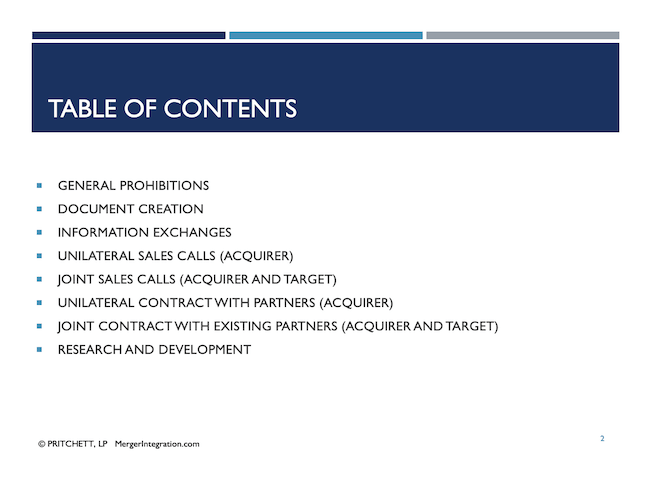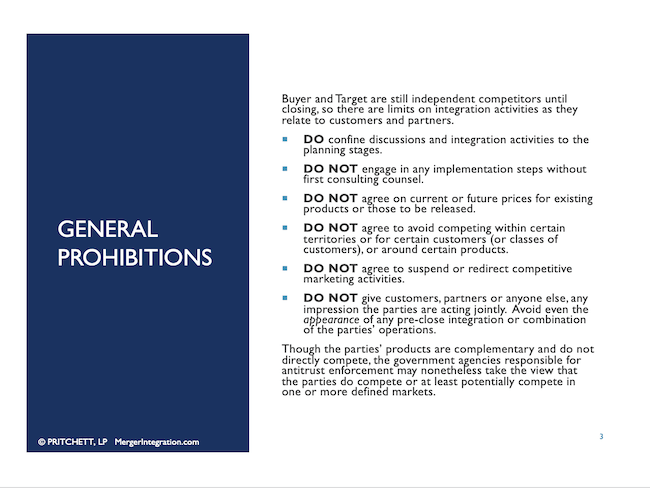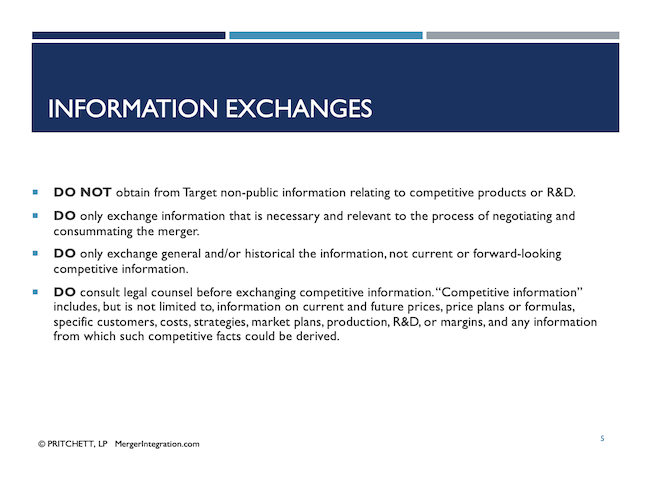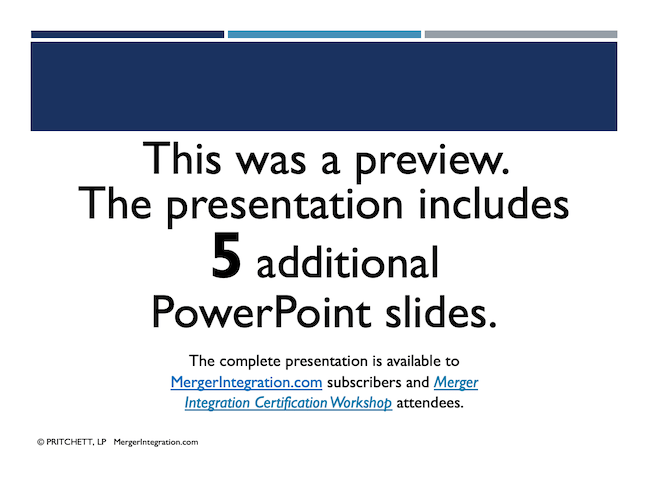Table of Contents
- General Prohibitions
- Document Creation
- Information Exchanges
- Unilateral Sales Calls (Acquirer)
- Joint Sales Calls (Acquirer and Target)
- Unilateral Contract with Partners (Acquirer)
- Joint Contract with Existing Partners (Acquirer And Target)
- Research and Development
General Prohibitions
Buyer and Target are still independent competitors until closing, so there are limits on integration activities as they relate to customers and partners.
- DO confine discussions and integration activities to the planning stages.
- DO NOT engage in any implementation steps without first consulting counsel.
- DO NOT agree on current or future prices for existing products or those to be released.
- DO NOT agree to avoid competing within certain territories or for certain customers (or classes of customers), or around certain products.
- DO NOT agree to suspend or redirect competitive marketing activities.
- DO NOT give customers, partners or anyone else, any impression the parties are acting jointly. Avoid even the appearance of any pre-close integration or combination of the parties’ operations.
Though the parties’ products are complementary and do not directly compete, the government agencies responsible for antitrust enforcement may nonetheless take the view that the parties do compete or at least potentially compete in one or more defined markets.
Document Creation
- Keep written materials to a minimum, especially those that deal with market shares, pricing, strategic plans, competition, etc.
- Avoid using terms like “market,” “market share,” “dominance,“ and “leverage” in any written materials. Despite common business meanings, they can be misinterpreted in an antitrust context.
- Discuss with Legal any proposed studies or reports analyzing the transaction or business of the target or combined companies prior to creation and during drafting stages.
Information Exchanges
- DO NOT obtain from Target non‑public information relating to competitive products or R&D.
- DO only exchange information that is necessary and relevant to the process of negotiating and consummating the merger.
- DO only exchange general and/or historical the information, not current or forward-looking competitive information.
- DO consult legal counsel before exchanging competitive information. “Competitive information” includes, but is not limited to, information on current and future prices, price plans or formulas, specific customers, costs, strategies, market plans, production, R&D, or margins, and any information from which such competitive facts could be derived...









